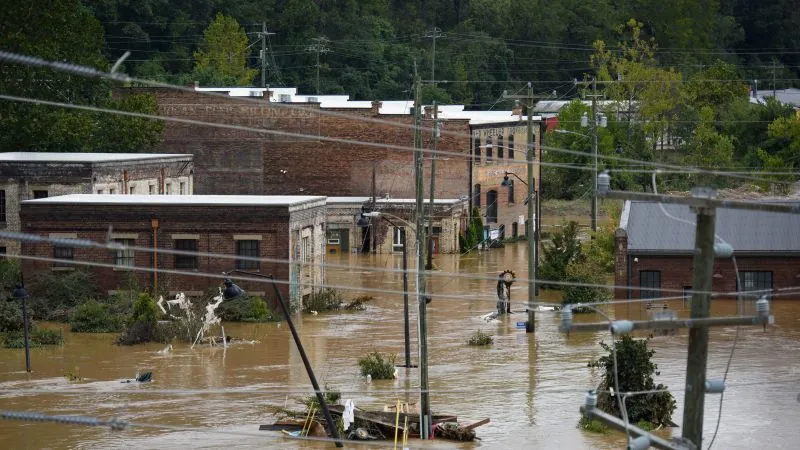
Local Radio Stations Rise as Critical Support for North Carolina Communities Devastated by Hurricane Helene
2024-09-30
Author: Ming
In the aftermath of Hurricane Helene, local radio stations in western North Carolina have become a beacon of hope and a vital source of information for communities grappling with the disaster. As the floodwaters continue to recede, the airwaves have been filled with callers seeking assistance, with requests ranging from finding missing loved ones to inquiries about evacuation routes.
One poignant call came from Paul, who expressed alarm over a nearby dam's potential failure, reflecting a community on edge. “People are freaking out right now,” he noted, revealing anxiety over the safety of local infrastructure. The responsive hosts quickly reassured listeners that these were merely rumors and emphasized the importance of accurate information.
With many communication lines down following the storm, these local broadcasters emerged as lifelines, diligently updating residents on road closures, crucial safety information, and government aid availability. In a heroic effort, News Radio 570 WWNC, North Carolina's oldest station, along with six other iHeartMedia stations, synchronized their broadcasts to cover report updates, embodying the spirit of community solidarity.
Mark Starling, a host from WWNC, provided ongoing live coverage, announcing to his audience, “Please take care of yourselves. If you need help, ask for it.” Starling, who had been on duty since the storm's onset, revealed the challenges of maintaining broadcasts, including reliance on SpaceX’s Starlink satellite internet to stay connected.
Co-hosts Starling and Eddie Foxx frequently highlighted the stories and heartbeats of their community, with Foxx recalling, “It will now be known as pre- and post-Helene,” acknowledging the storm's profound impact on the landscape and lives of those affected. The overwhelming loss of life has left a mark, and the numbers continue to rise, indicating the severity of the catastrophe.
As the broadcasters provided real-time information, local news outlets also played an indispensable role. Key updates included guidance on where to obtain essential supplies such as gas, groceries, and clean water, alongside safety advisories in place for boil water alerts. Their ongoing commitment to serve the public was demonstrated through engaging discussions with locals, who were eager to connect and share their experiences in a time of crisis.
Listeners were encouraged to remain hopeful; recovery would be a long road ahead, but communal efforts would ensure no one faced these challenges alone. Foxx echoed the sentiment of unity that emerged amidst struggle, “We’re all in this together and we’re all going to make it through this together.”
The remarkable resilience of the community continued to shine through. Sentiments of neighborly connection were palpable as hosts conducted light-hearted banter, with one listener humorously speculating about an anticipated baby boom in nine months—drawing laughter and relief in a time of distress.
Ultimately, the story of North Carolina's response to Hurricane Helene is one of bravery, solidarity, and the unbreakable spirit of its residents. The local radio stations stand testament to how critical communication can be in times of crisis, bridging gaps where other forms of contact fail and fostering a sense of hope as recovery efforts progress.


 Brasil (PT)
Brasil (PT)
 Canada (EN)
Canada (EN)
 Chile (ES)
Chile (ES)
 España (ES)
España (ES)
 France (FR)
France (FR)
 Hong Kong (EN)
Hong Kong (EN)
 Italia (IT)
Italia (IT)
 日本 (JA)
日本 (JA)
 Magyarország (HU)
Magyarország (HU)
 Norge (NO)
Norge (NO)
 Polska (PL)
Polska (PL)
 Schweiz (DE)
Schweiz (DE)
 Singapore (EN)
Singapore (EN)
 Sverige (SV)
Sverige (SV)
 Suomi (FI)
Suomi (FI)
 Türkiye (TR)
Türkiye (TR)